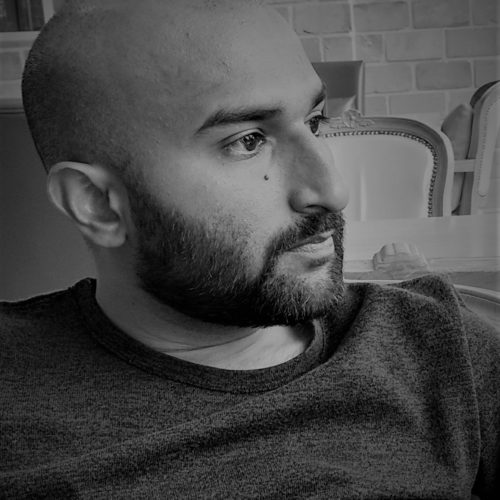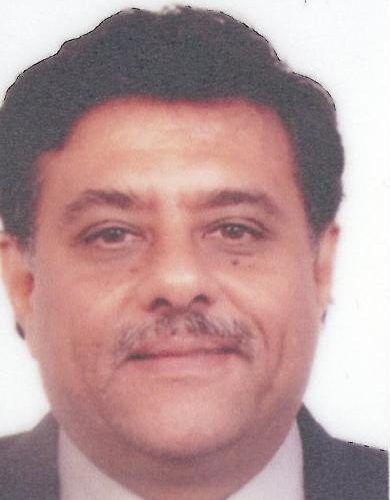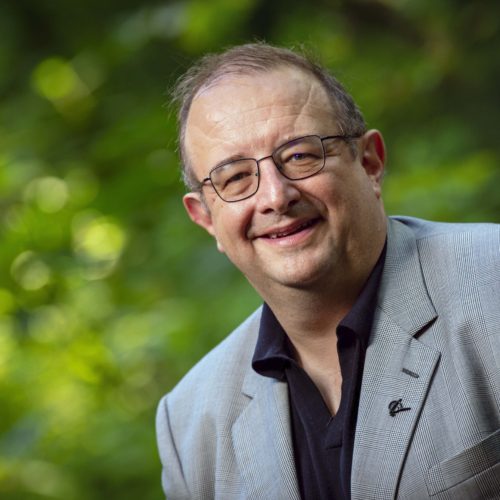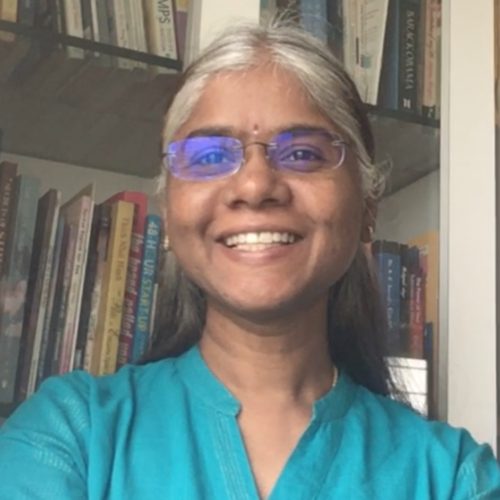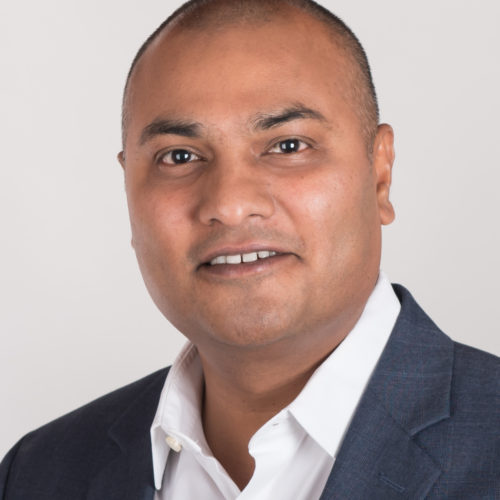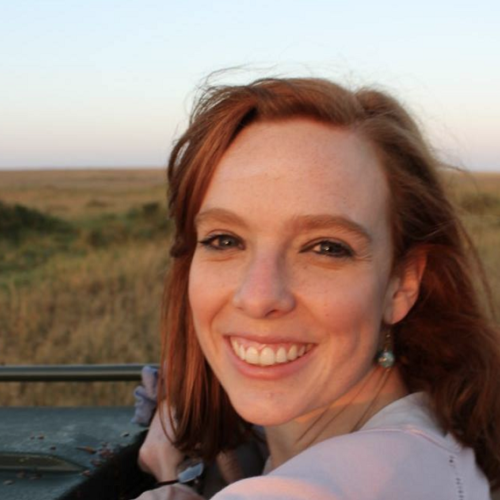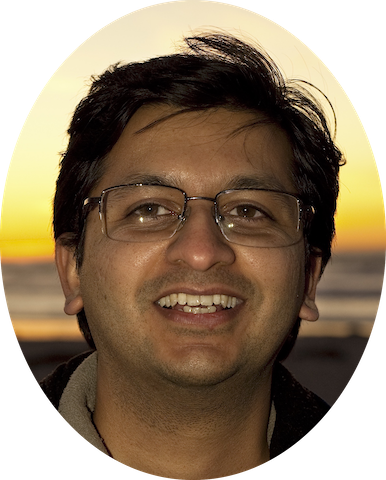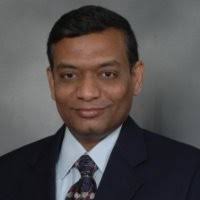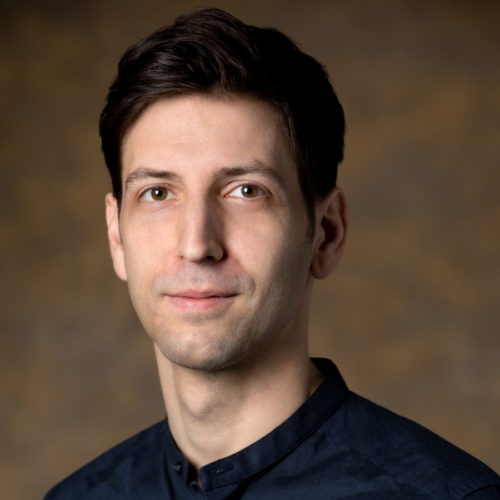Abstract
From spam filters to self-driving cars, artificial intelligence (AI) is progressing rapidly and is deemed by many as a great transformative technology. However, very little is known as to what transpires under the hood of the AI system. As AI makes its way into our day to day life, the challenges in the field of AI is no longer limited to achieving state-of-the-art but also addressing concerns around ethics, explainability, robustness, trustworthiness, fairness, and AI lifecycle management among others. We, at IEEE Computer Society Bangalore Chapter, bring these topics alive by interacting with the best minds in industry and academia by spearheading a two-day Flagship Symposium on “AI Life Cycle: Industry Challenges and Research Frontiers”. This symposium will focus on techniques around lifecycle management of AI models and underlying challenges, new techniques in optimization, endowed with foundational bases to enrich and accelerate training without relying heavily on augmented architectures.

Location
Virtual Meeting

Date & Time
30 – 31 October 2020
Speakers
Arun Jose is the Co-founder and algorithmist at ExactSpace Technologies, an industrial AI company. He has spent the last 12 years in various roles related to creating value from data via technology products. In the last 6 years, he has focused on product development for industrial applications in Mining, Oil & Gas and Energy. Combining data science with deep knowledge of industrial assets and real-time data, he has created AI solutions that help run safer, reliable and efficient operations. He has specific experience in deploying AI in thermal power generation, refinery thermal management, steel rolling and cement manufacturing. Having taken multiple concepts to commercial implementation and creating tangible impact and connecting people via IoT solutions he has firsthand knowledge on the challenges in building the right technologies and creating a sustainable business. Customers that he has delivered value to include BHEL, ABB, Aditya Birla, Ultratech amongst others. He is well versed with multiple technologies in the connected ecosystem, from deploying wireless sensors to building a scalable cloud infrastructure and mobility. In his free time, he teaches data science to young students and professional and also dabbles in carpentry.
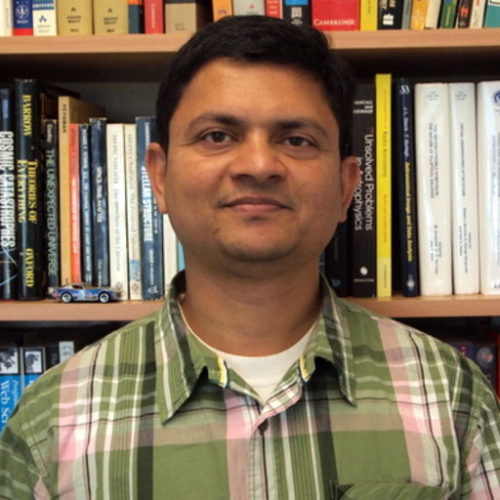
Ashish Mahabal
Caltech
Dr. Ashish Mahabal is a Lead Computational Scientist in Astronomy at Caltech. He got his PhD at IUCAA, Pune in 1998, and after a one-year postdoc at PRL, Ahemdabad, moved to Caltech. He is one of the initial members of the US National Virtual Observatory (NVO). He has worked on several sky surveys and currently leads the machine learning group for the Zwicky Transient Facility (ZTF). His main area of expertise is data science related to identification and classification of transient astronomical sources. More generally he is interested in informatics, virtual worlds and educational outreach. Through methodology transfer he also applies astronomical data science techniques to medical data.

Ashwin Srinivasan
APPCAIR, BITS Pilani
Ashwin Srinivasan is an Indian born, Australian-British electrical engineer, computer scientist, and class of 1981 Chair professor of computer science at BITS-Pilani, Goa Campus , and previously research staff member at IBM India Research Lab ], New Delhi. He holds a Ph.D. from University of New South Wales on Non-monotonic logics and their application. His research interests include symbolic machine learning, inductive logic programming (ILP), implementation of ILP in particular the ILP systems Aleph and P-Progol ], bioinformatics and chemoinformatics. Ashwin received his Ph.D. from the School of Electrical Engineering and Computer Science from the University of New South Wales, Australia, in 1991. His dissertation examined the use of defeasible logic for the photo-interpretation of remotely sensed data and investigated the comparative advantage of this representation over methods like Multivariate Gaussian Analysis and Dempster Shafer Theory. During the latter half of 1990, he developed a non-monotonic logic-based system for interpreting chemical pathology data. This was awarded the Pacific Diagnostic’s Prize and recommended for use in all hospitals in the state of New South Wales. In 1991, Ashwin joined the ILP group at the Turing Institute, Scotland and—with S. Muggleton (now at Imperial College, London)— worked on the application of Algorithmic Information Theory to noise-detection and non-monotonic learning in ILP. From 1993, Ashwin was a member of the Oxford University Computing Laboratory, where he was involved in pioneering applications of ILP systems to difficult real-world problems in molecular biology and chemistry. From 1998-2000 he was the Nuffield Trust Research Fellow in Medical Mathematics and a Research Fellow of Green College , Oxford. In 2001, he was appointed to a University Lecturership in Computation at Oxford and a Fellowship in Computation at St Peter’s College. Prior to this, he has also been a member of Wolfson College , Oxford. In 2003, he moved to the IBM Research – India, as a Research Staff Member. In 2009, he was awarded a Ramanujan Fellowship by the Department of Science and Technology of the Government of India. In 2010, he took up the post of Professor at the newly formed South Asian University, and became the founder Dean of the Faculty of Mathematics and Computer Science. He moved to the IIIT-D in Sept. 2012 and in Jan 2015 to BITS-Pilani, Goa. He was also a Visiting Professor at the Computing Laboratory, University of Oxford and is a Visiting Professorial Fellow at the School of Computer Science and Engineering, University of New South Wales.
Dr. Sitaram is the chair of the Cloud Computing Innovation Council of India working group that is working with DoT and TSDSI on developing cloud standards for India. The first version of the standards has been released, and he is currently working on an Interoperability Test Bed that would create an open, interoperable multi-cloud for India. He is the author of two books – a recent book on Cloud Computing, called “Moving to the Cloud – Developing Apps in the New World of Cloud Computing” published by American Elsevier in December 2011. His earlier book “Multimedia Servers” was published by Morgan Kaufman, San Francisco. He is the author of over 20 patents and 66 publications, and has over 5000 citations to his work. Dr. Sitaram received his Ph.D. from the University of Wisconsin-Madison and his B.Tech from IIT Kharagpur. He joined as a Research Staff Member in IBM’s Research Division at the IBM T.J.Watson Research Center, NY in 1984. At IBM, Dr. Sitaram received an IBM Outstanding Innovation Award (an IBM Corporate Award) as well as IBM Research Division Award and several IBM Invention Achievement Awards for his patents and research, received outstanding paper awards at ACM Multimedia for his work. He also served on the editorial board of the Journal of High-Speed Networking. Subsequently, he returned to India as Director of the Technology Group at Novell Corp., Bangalore in 1997. The group developed many innovative products in addition to filing for many patents and standards proposals. Dr. Sitaram received Novell’s Employee of the Year award. Subsequently in 2002, Dr. Sitaram was Chief Technology Officer at Andiamo Systems India (a storage networking startup), responsible for architecture and technical direction of an advanced storage management solution. Andiamo Systems was acquired by Cisco Systems. After Andiamo, Dr. Sitaram was Chief Technology Officer at HP Systems Technology and Software Division, the product R&D organization of HP in India. He focused on driving cloud and storage technologies as part of the HP Storage Division. He also worked on file system strategies, and high reliability for the HP Unix server division. He was also responsible for Patents and University Relations at STSD. Subsequently, Dr. Dinkar Sitaram was a Professor in the Department of Computer Science at PES University. He was head of the Center for Cloud Computing and Big Data at PES University, responsible driving research in these areas. In 2020, he retired from PES University.
Dragos Margineantu is the AI Chief Technologist and a Senior Technical Fellow with Boeing Research & Technology.
His research interests include Computational Decision Systems, Probabilistic Models for Uncertainty, Anomaly Detection, Robust Machine Learning, Human-in-the-loop Systems, Inverse Reinforcement Learning, Tractability in Intelligent Systems, Cost-sensitive Learning, Active, and Ensemble Learning.
Dragos was one of the research pioneers in ensemble learning and cost-sensitive learning since the 1990s.
At Boeing, he designed and developed computational solutions for airplane maintenance, autonomous systems, surveillance, manufacturing optimization, and design.
Dragos is the technical lead of the team developing the decision system, perception localization and mapping for the Autonomous Caravan, developed by BCA PD.
He served as PI and technical lead of DARPA programs ranging from “Learning Applied to Ground Robots” (that pioneered autonomous driving) to “Bootstrapped Learning”, and from “Personal Assistant that Learns (PAL)” to “Assured Autonomy” – a program that sets the foundations of robust machine learning engineering for autonomous systems.
Dragos Margineantu serves as the Editor of the Springer book series on “Applied Machine Learning” and as the Action Editor for Special Issues for the Machine Learning Journal (MLj). He serves on the editorial board of both major machine learning journals (MLj and JMLR), and served as senior program committee member of all major machine learning and AI research conferences. In 2015 he was the program chair of the premier applied data science conference, the KDD – Applied Science Track.
In his free time, Dragos coaches middle schoolers for Mathematics Competitions or takes his camera out to photograph unique corners of nature.
Abstract of the talk:Robust Machine Learning
Geetha is an executive IT Architect with 20 years of experience in IBM . Currently she leads SRE transformation for IBM AI Applications. In her current role, she leads IBM Engineering and research data scientists in delivering AI based insights to large Enterprise Customers. As an Executive Architect, Geetha is responsible for the strategy and vision of SRE and Technology standards for TRIRIGA, Maximo, Engineering Lifecycle Management ,Sterling and Weather solutions. Her initial years in Data Science focused on unstructured data analytics, big data and applying text analytics in the area of IT Operations Analytics. Geetha has made multi million dollar impact for IBM by leading work for large Enterprise customers in the area of performance Engineering and Enterprise Architecture. Geetha has 13 patents. In 2019, she received “Women in AI leadership” award by Jigsaw Academy. She was selected as “Women achiever” from CII (Confederation of Indian Industry) in 2011. She was invited as panelist in IEEE SmartTech 2018 and Zinnov Confluence ’19. Geetha holds B.S in Information systems from BITS Pilani.
Harsh Dharwad is an experienced global technology leader who is passionate about solving healthcare challenges with technological solutions that make a difference in the lives of patients and clinicians. He excels at simplifying complex problems, building high performing cultures and empowering teams to execute the vision of an organization. Harsh is currently the President & Chief Executive Officer of Nihon Kohden USLab, where he provides strategic leadership and direction for creating patient data acquisition and management systems that reduce costs, improve quality and increase access to healthcare. Prior to Nihon Kohden, Harsh was Director of Software Development at Pfizer, where he oversaw the development of infusion pump technology and value-added software applications, as well as kick-started an initiative focused on innovation and pipeline development. He worked previously at Hospira as the General Manager responsible for leading an R&D site. Harsh has also held technical management positions at companies including Siemens and Philips.
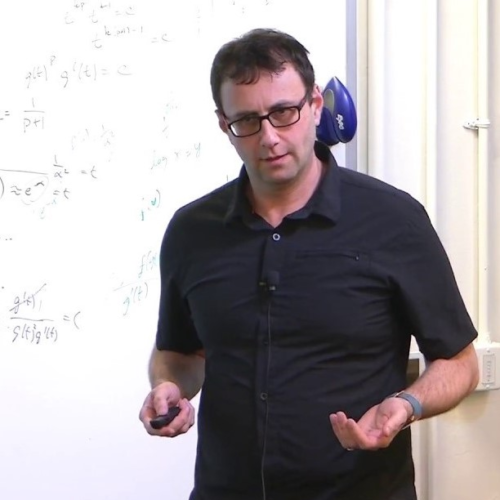
Mikhail Belkin
UCSD
Mikhail Belkin received his Ph.D. in 2003 from the Department of Mathematics at the University of Chicago. His research interests are in theory and applications of machine learning and data analysis. Some of his well-known work includes widely used Laplacian Eigenmaps, Graph Regularization and Manifold Regularization algorithms, which brought ideas from classical differential geometry and spectral analysis to data science. His recent work has been concerned with understanding remarkable mathematical and statistical phenomena observed in deep learning. This empirical evidence necessitated revisiting some of the basic concepts in statistics and optimization. One of his key recent findings is the “double descent” risk curve that extends the textbook U-shaped bias-variance trade-off curve beyond the point of interpolation.
Mikhail Belkin is a recipient of a NSF Career Award and a number of best paper and other awards. He has served on the editorial boards of the Journal of Machine Learning Research, IEEE Pattern Analysis and Machine Intelligence and SIAM Journal on Mathematics of Data Science.

Pooja Baraskar
IoT Evangelism Lead - APJ, Intel
Pooja Baraskar is an Internet of Things (IoT) developer evangelist at Intel and driving IOT Evangelism for APJ. In her role as IoT Evangelist, she provides industry thought leadership and technical expertise in the area of Industrial IoT. Pooja has rich experience in rapid prototyping, sensor-based systems, developing IoT and Windows applications. She is an expert in C# and a part of multiple tech communities where she writes articles, blogs and helps others with their queries and moderating content. She has been a long-time contributor to Intel’s Innovator Program and has trained hundreds of developers on Intel IoT platforms and technologies.
Sara Hooker is a researcher at Google Brain doing deep learning research on reliable explanations of model predictions for black-box models. Her main research interests gravitate towards interpretability, model compression and security. In 2014, she founded Delta Analytics, a non-profit dedicated to bringing technical capacity to help non-profits across the world use machine learning for good. She grew up in Africa, in Mozambique, Lesotho, Swaziland, South Africa, and Kenya.
Abstract of the talk:Panel
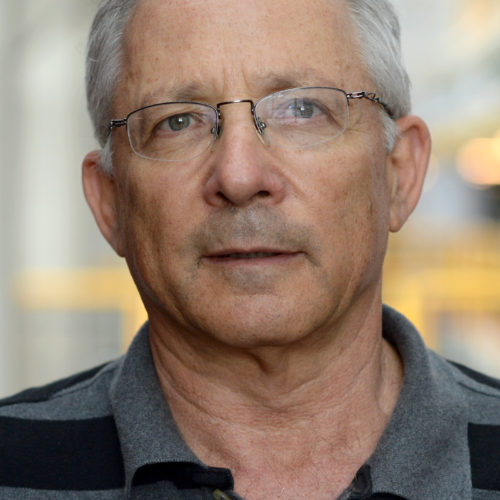
Shai Ben-David
University of Waterloo
Shai Ben-David is a Professor of Computer Science and University Research Chair at the University of Waterloo, and a faculty member at the Vector Institute, Canada. His main research interests are machine learning, Computer Science theory and Mathematical Logic. He is a co-author of the textbook “Understanding Machine Learning – from Theory to Algorithm” and has served as Program Chair and Senior Program Committee Member for all major annual machine learning conferences.
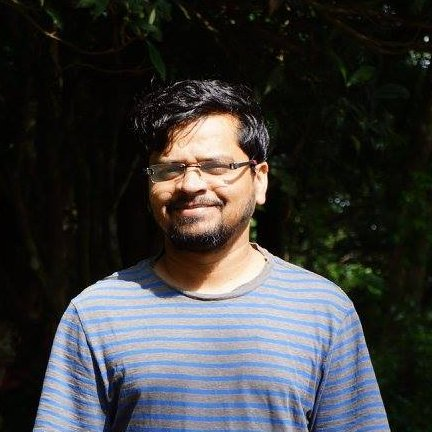
Soma S Dhavala
ML Square
Soma S Dhavala is an ML Architect and founder of mlsquare.org, an open-source initiative to democratize AI. He operates at the interface of Statistics, Machine Learning, Computing, and Internet of Things. His interests are in Graphs, Meta Machine Learning and their application in representing, and reasoning with information. Soma obtained his Ph.D (TAMU, 2010) in Statistics where he worked on applying Bayesian Nonparametrics to systems biology (2010), has a Masters (IIT-M, 2000) in EE and a B.E (SRKREC-Andhra University, 1997) in ECE. He also worked as a postdoc close to a year in the area of Dynamical Systems at TAMU. He has over 10+ publications and multiple patents. He is currently pursuing Masters in Applied Maths (online) from University of Washington. His industrial experience spans EdTech, Healthcare and Life Sciences, among others.
Srikanta Bedathur is an associate professor at the Department of Computer Science and Engineering at IIT Delhi. Until recently he worked as a research scientist at IBM Research as part of their AI Research team. Before joining IBM in 2014, Srikanta worked as a faculty member at IIIT Delhi, where he founded the Max-Planck Partner Group on Large-scale Graph Search and Mining. Even before joining IIIT-D, he was a senior researcher at the Max-Planck Institute for Informatics (MPII) as part of the Databases and Informatics Systems department. Srikanta’s PhD (2005) was from the Indian Institute of Science, Bangalore.
Vinay Jammu is the VP-Physical-Digital Technologies at GE Digital based at the John F Welch Technology Organization, Bangalore. He is responsible for strategy and execution of domain-based analytics and software to differentiate GE’s Industrial Internet Solutions. Before this role, Vinay was Technology Director for Software and Analytics in GE Research where he spent 23 years driving physical-digital technologies.
Vinay obtained his doctoral degree from University of Massachusetts, Amherst in 1996 in Mechanical Engineering with specialization in applications of Artificial Intelligence (AI) for machine prognosis. After a brief stint at Mechanical Technology Inc, NY, he joined GE Global Research, Schenectady, NY in 1997 as Diagnostics Engineer where he focused on developing predictive analytics for failure and life prediction of industrial assets. Vinay relocated to Bangalore in 2002 and held multiple roles as Lab Manager, Technology Leader and Technology Director for Aero-Thermal and Mechanical Systems as well as Software and Analytics organizations in GE Global Research. Vinay is a certified master black belt, has 40 patents applications, and 60+ internal and external publications.
Abstract of the talk:AI Lifecycle and challenges
Zachary Chase Lipton is the BP Junior Chair Assistant Professor of Operations Research and Machine Learning at Carnegie Mellon University. His research spans core machine learning methods and their social impact and addresses diverse application areas, including clinical medicine and natural language processing. Current research focuses include robustness under distribution shift, breast cancer screening, the effective and equitable allocation of organs, and the intersection of causal thinking and the messy high-dimensional data that characterizes modern deep learning applications. He is the founder of the Approximately Correct blog (approximatelycorrect.com) and a co-author of Dive Into Deep Learning, an interactive open-source book drafted entirely through Jupyter notebooks. Find on Twitter (@zacharylipton) or GitHub (@zackchase).
Event Schedule
Day 1 (Friday – 30 October 2020): AI Lifecycle and Production Challenges
Time (IST) Session Topic Speakers/Guests 05:20 PM Welcome Note Vishwas Lakkundi,
Chair, IEEE CS Bangalore Chapter 05:30 PM Keynote 1 AI Life Cycle and Challenges Vinay Jammu,
VP, Physical-Digital Technologies at
GE Digital, Bangalore 06:30 PM Keynote 2 Advanced Data Prep Techniques Srikanta Bedathur,
Associate Professor, Dept. of CSE, IIT Delhi 07:30 PM Demo Session Accelerate Deep Learning Applications
with Intel® Distribution of OpenVINO™
toolkit Pooja Baraskar,
IoT Evangelism Lead - APJ, Intel 08:30 PM Panel Discussion Challenges from Deployment: Edge
Analytics, IoT, AI, Cloud Moderator: Arun Jose, Co-founder ExactSpace
Panelist 1: Geetha Adinarayan, STSM IBM
Panelist 2: Dinkar Sitaram , Chair, CCICI
Panelist 3: Harsh Dharwad, President & CEO, Nihon Kohden USLab
| Time (IST) | Session | Topic | Speakers/Guests |
|---|---|---|---|
| 05:20 PM | Welcome Note | Vishwas Lakkundi, Chair, IEEE CS Bangalore Chapter | |
| 05:30 PM | Keynote 1 | AI Life Cycle and Challenges | Vinay Jammu, VP, Physical-Digital Technologies at GE Digital, Bangalore |
| 06:30 PM | Keynote 2 | Advanced Data Prep Techniques | Srikanta Bedathur, Associate Professor, Dept. of CSE, IIT Delhi |
| 07:30 PM | Demo Session | Accelerate Deep Learning Applications with Intel® Distribution of OpenVINO™ toolkit | Pooja Baraskar, IoT Evangelism Lead - APJ, Intel |
| 08:30 PM | Panel Discussion | Challenges from Deployment: Edge Analytics, IoT, AI, Cloud | Moderator: Arun Jose, Co-founder ExactSpace Panelist 1: Geetha Adinarayan, STSM IBM Panelist 2: Dinkar Sitaram , Chair, CCICI Panelist 3: Harsh Dharwad, President & CEO, Nihon Kohden USLab |
Day 2 (Saturday – 31 October 2020): Robust Optimization, Machine Learning and Explainable AI
Time (IST) Session Topic Speakers/Guests 04:30 PM Keynote 1 Neuro Symbolic AI Ashwin Srinivasan,
Head of APPCAIR, BITS Pilani, Goa Campus 05:15 PM Keynote 2 Binary Quantile Losses Soma Dhavala,
Founder MLsquare 06:30 PM Keynote 3 Toward a theoretical understanding
of deep learning Mikhail Belkin Professor,
Halicioglu Data Science Institute at UCSD 07:30 PM Keynote 4 Robust Machine Learning Dragos Margineantu,
AI Chief Technologist & STF, Boeing Research & Technology, USA 08:30 PM Panel Discussion Explainable & Interpretable AI Moderator: Shai Ben David, University of Waterloo, Ontario, Canada
Panelist 1: Sara Hooker, Google Brain, USA
Panelist 2: Ashish Mahabal , California Institute of Technology
Panelist 3: Zack Lipton, Carnegie Mellon University, Pennsylvania 09:30 PM Closing Remarks Vote of Thanks Secretary, IEEE CS Bangalore Chapter
| Time (IST) | Session | Topic | Speakers/Guests |
|---|---|---|---|
| 04:30 PM | Keynote 1 | Neuro Symbolic AI | Ashwin Srinivasan, Head of APPCAIR, BITS Pilani, Goa Campus |
| 05:15 PM | Keynote 2 | Binary Quantile Losses | Soma Dhavala, Founder MLsquare |
| 06:30 PM | Keynote 3 | Toward a theoretical understanding of deep learning | Mikhail Belkin Professor, Halicioglu Data Science Institute at UCSD |
| 07:30 PM | Keynote 4 | Robust Machine Learning | Dragos Margineantu, AI Chief Technologist & STF, Boeing Research & Technology, USA |
| 08:30 PM | Panel Discussion | Explainable & Interpretable AI | Moderator: Shai Ben David, University of Waterloo, Ontario, Canada Panelist 1: Sara Hooker, Google Brain, USA Panelist 2: Ashish Mahabal , California Institute of Technology Panelist 3: Zack Lipton, Carnegie Mellon University, Pennsylvania |
| 09:30 PM | Closing Remarks | Vote of Thanks | Secretary, IEEE CS Bangalore Chapter |


